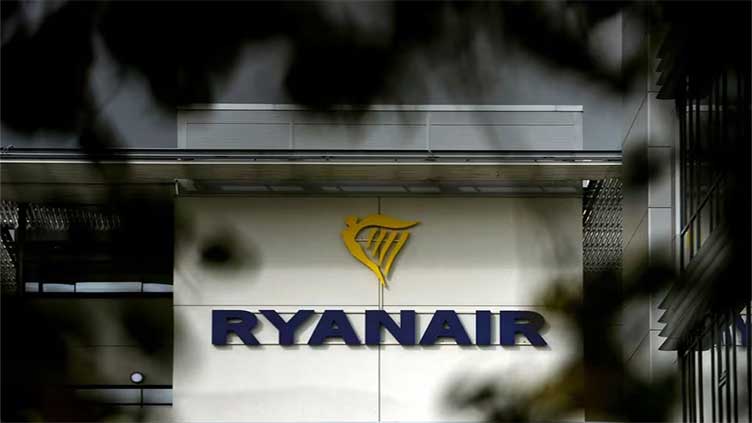Ryanair may have to cut summer flights due to further Boeing delays

Business
Ryanair may have to cut summer flights due to further Boeing delays
DUBLIN (Reuters) – Ryanair will receive even fewer Boeing aircraft by the end of June than previously expected, CEO Michael O'Leary said on Friday, potentially prompting the budget carrier to cut its summer schedule at the busiest time of the year.
The Dublin-based airline is the first in Europe to warn of disruption due a deepening crisis at Boeing, which has been mired in a regulatory audit and has been prohibited from ramping up 737 MAX production since the Jan 5 mid-air panel blowout of a new Alaska Airlines MAX 9.
Ryanair was due to receive 57 Boeing MAX 8200 planes by end-April, but just over a week ago Boeing told the airline it would receive around 50 aircraft by end-June, O'Leary said. That could now change.
"We don't really know how many aircraft we're going to get from Boeing," O'Leary said at a media briefing. "We're pretty sure we're going to get 30 to 40. We're reasonably confident we're between 40 and 45. And now we are far less confident we're going to get between 45 and 50."
In a statement to Reuters, Boeing confirmed that it has told some airlines that deliveries could be delayed as the company ensures planes meet all regulatory standards before being handed over to customers.
"We deeply regret the impact this is having on our valued customer Ryanair," Boeing said. "We're working to address their concerns and taking action on a comprehensive plan to strengthen 737 quality and delivery performance.”
The delayed deliveries mean Ryanair might have to remove some flights from its summer schedule, O'Leary said, cutting capacity for what is expected to be a record summer of travel.
"If we only get 40, by the end of March we will have to announce some minor schedule cuts," he said.
That means Ryanair is likely to carry only 200 million passengers for the financial year beginning in April, versus the 205 million previously forecast.
Further capacity constraints could make the carrier, known for its low ticket prices to summer hotspots like Malaga and Sicily, less competitive against low-cost rivals like easyJet.
Ryanair's stock has risen by a quarter over the past two years, making it the best performing European airline as the industry benefits from a travel boom after COVID pandemic lockdowns.
'BROKEN PROMISES'
O'Leary did not mince words in criticising Boeing for its communication with Ryanair since January's door plug issue.
"There's a shitshow going on in Seattle," O'Leary said, repeating his calls for management changes. "They keep giving us optimistic, broken promises. And then a week or two weeks later... it turns out that reality is worse."
His comments come days after the first management shakeup at Boeing as a result of the MAX 9 accident - the replacement of 737 program head Ed Clark, an 18-year Boeing veteran, with Katie Ringgold, who led 737 delivery operations.
If United Airlines or other carriers drop orders of Boeing's MAX 737 10, Ryanair would gladly take the planes, O'Leary said.
"I'd be delighted to take them as long as they get the right price. It would give us some growth in 2027 or 2028."
O'Leary said he will pass some of the costs of delays to customers. Prices will rise by about 5%-10% this summer, and average fares could increase by 10-15 euros in the next five years.
Analysts say customer costs are set to keep going up across the sector.
"General supply chain delays is a continuing theme and is pushing upward pressure on fares and indeed aircraft values and lease rates," said Stephen Furlong, an analyst with Davy.
The airline was discussing possible compensation with Boeing to mitigate for losses.
"It's inexcusable. Boeing will try to claim that it's excusable. I think we (will) get some modest compensation out of Boeing," O'Leary said.
"At this point our focus is getting the bloody airplanes."


